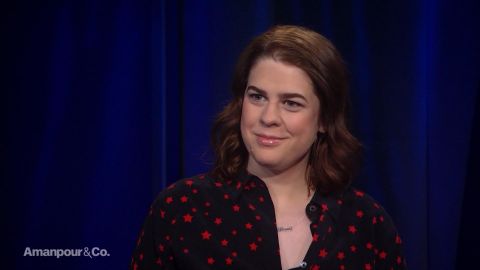Read Transcript EXPAND
CHRISTIANE AMANPOUR: So, look, “Difficult Women,” what is it that made you choose that title? Who is it that made you choose that title?
HELEN LEWIS, AUTHOR, “DIFFICULT WOMEN”: Well, actually, it was a male friend who suggested it to me because it happened around the time that — if you remember, Theresa May, who was then prime minister, was described by Ken Clarke, who had been in her cabinet as a bloody difficult woman. And actually, he meant that kind of admiringly but I think it’s a double-edge sword, isn’t it, the idea of being difficult as a woman. It means that you’re probably going to get a lot of stuff done but people aren’t going to like you necessarily for it.
AMANPOUR: OK. So, that is really, really interesting. It’s the age-old problem that persists to a great extent today. But you go back, your subjects here are mostly historical figures. And I mean, let’s just take the most famous one who we recognize, Marie Stopes, who was absolutely sort of a pioneer in the birth control movement. And yet, there were other aspects of her character that you outline that made her not just a difficult woman, but maybe not even an admirable woman. So, just describe why Marie Stopes was somebody that you really wanted to focus on?
LEWIS: So, Marie Stopes basically has got some personality issues. She was incredibly addicted (INAUDIBLE). She was impossible to work with. She was determined that she was going to be the figure head for this movement. You know, she claimed a lot of credit. She was not prepared to stand at the back. But there is also this kind of dark past to the fact that she supported eugenics. She (INAUDIBLE) you should control populations through breeding, that some people should be allowed to have children and some people maybe – – shouldn’t. And there was a huge amount of naivety about that in 1920s about where it might lead, which we all saw later in the century. And that’s something that’s common to both the birth control movement in the U.K. and the U.S., this interplay of the huge freedom for women bound with these slightly unpleasant political overtones.
AMANPOUR: And would you say that the reason why we haven’t focused on the dark side is because the social, cultural and political — you know, the freedom actually, the birth control, the health that birth control brought in was so much more important?
LEWIS: I think there’s a tendency meaning exactly not to want to tarnish that with the unpleasant legacy that it’s got. Because you’re exactly right and in terms of women’s life expectancy, in terms of their achievements, we know all around the world, you know, the best way to lift countries out of poverty is to educate women. They’ll have babies later in life. They’ll have fewer babies. And — but that then becomes a very unpleasant thing and it is also — you know, sometimes you get pushback in countries where they say this is a western imposition and this is about stopping us having enough babies. These are kind of white people coming in and telling us what to do with our women.
About This Episode EXPAND
Journalist Helen Lewis tells Christiane about her new book on difficult women who changed the world. German author Daniel Kehlmann describes the vision behind his new novel “Tyll.” Yale law professor Daniel Markovits sits down with Hari Sreenivasan to explain why meritocracy is a trap.
LEARN MORE


